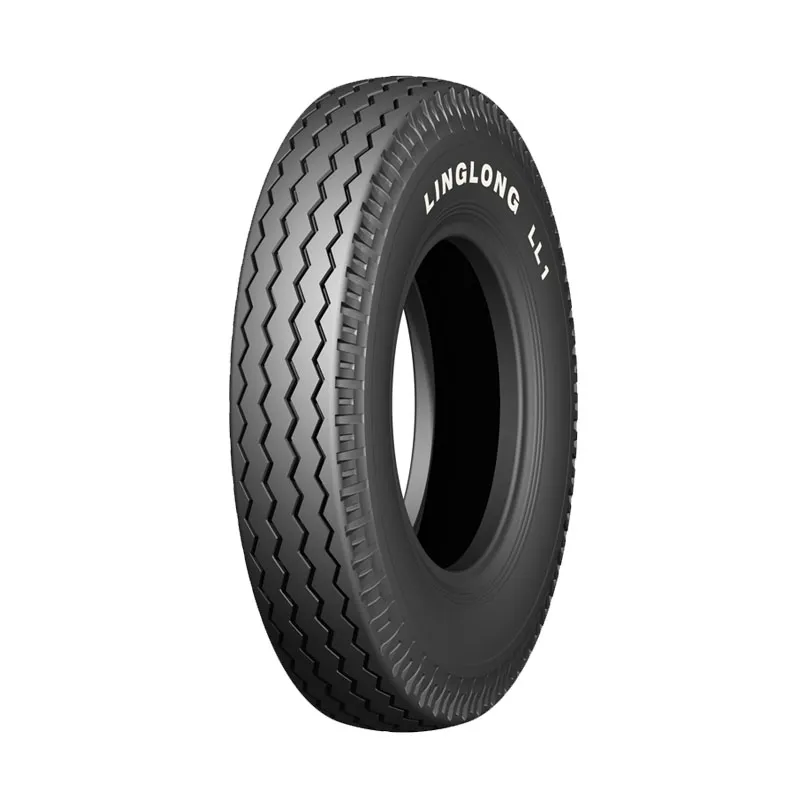The Essential Guide to Truck and Bus Tires: Choosing the Right Ones for Optimal Performance
2024-08-30
In the realm of commercial transportation, whether it’s for trucks or buses, the choice of tires is crucial for ensuring safety, efficiency, and longevity. Truck and bus tires are not just about rolling from one place to another—they are integral to the overall performance and operational costs of these vehicles. In this blog, we’ll delve into the various aspects of truck and bus tires, including their types, key features, benefits, and tips for selecting the right ones for your fleet.
Understanding Truck and Bus Tires
Truck and bus tires are specifically designed to meet the demanding requirements of heavy-duty transportation. They must handle significant loads, endure long-distance travel, and perform reliably under various road conditions. Unlike passenger car tires, these tires are built to withstand higher stresses and provide better traction and durability.
Types of Truck and Bus Tires
1. Steer Tires:
- Purpose: Designed for the front axle, steer tires are crucial for handling and steering control.
- Features: They typically have a more aggressive tread pattern for better traction and maneuverability.
2. Drive Tires:
- Purpose: Found on the rear axles of trucks, drive tires provide the necessary traction to move the vehicle.
- Features: They have deeper treads and stronger sidewalls to cope with the stresses of driving and load-bearing.
3. Trailer Tires:
- Purpose: Used on trailers, these tires support the load and provide stability.
- Features: They often have a tread pattern optimized for durability and even wear under heavy loads.
4. All-Position Tires:
- Purpose: Suitable for use on all axles, including steering, drive, and trailer axles.
- Features: Designed to offer balanced performance across various applications and road conditions.
Key Features of Truck and Bus Tires
1. Load Capacity:
- Truck and bus tires are designed to handle heavy loads, which is critical for commercial vehicles. Each tire has a specific load rating that indicates how much weight it can support safely.
2. Durability:
- These tires are built with robust materials and reinforced sidewalls to endure the rigors of long-distance travel and harsh road conditions. They are engineered to resist punctures, cuts, and abrasions.
3. Traction:
- The tread pattern of truck and bus tires is designed to provide optimal grip and traction, which is essential for maintaining control, especially in adverse weather conditions.
4. Fuel Efficiency:
- Modern truck and bus tires are designed with fuel efficiency in mind. Low rolling resistance tires can help reduce fuel consumption and operating costs.
5. Comfort and Noise Reduction:
- Although less critical for commercial vehicles, some truck and bus tires are designed to offer a quieter ride and better comfort for drivers and passengers.
6. Temperature Resistance:
- These tires are built to perform well across a wide range of temperatures, including extreme heat and cold, ensuring reliable performance in various climates.
Benefits of Choosing the Right Truck and Bus Tires
1. Improved Safety:
- High-quality tires enhance vehicle safety by providing better traction, stability, and handling. This is crucial for avoiding accidents and ensuring the safety of passengers and cargo.
2. Cost Efficiency:
- Investing in durable, fuel-efficient tires can lead to significant cost savings in terms of fuel consumption and maintenance. Properly maintained tires also extend the lifespan of your investment.
3. Enhanced Performance:
- The right tires contribute to optimal vehicle performance, including better handling, braking, and acceleration. This is essential for maintaining efficient operations and meeting delivery schedules.
4. Reduced Downtime:
- Reliable tires reduce the likelihood of breakdowns and flat tires, which can lead to costly downtime and disruptions in operations.
5. Environmental Impact:
- Fuel-efficient tires contribute to lower emissions and reduced environmental impact, aligning with sustainability goals and regulations.
Tips for Selecting the Right Truck and Bus Tires
1. Understand Your Requirements:
- Consider the specific needs of your vehicle and operation. Factors such as load capacity, road conditions, and climate will influence the type of tire you need.
2. Check Load Ratings:
- Ensure that the tires you choose have the appropriate load ratings for your vehicle and its intended use. Overloading tires can lead to premature wear and potential safety hazards.
3. Evaluate Tread Patterns:
- Different tread patterns offer varying levels of traction and performance. Choose a pattern that suits the typical driving conditions your vehicle will encounter.
4. Consider Fuel Efficiency:
- Opt for tires with low rolling resistance to improve fuel efficiency and reduce operating costs. Look for tires with eco-friendly labels or certifications.
5. Prioritize Quality and Brand:
- Invest in high-quality tires from reputable brands known for their durability and performance. Quality tires often come with warranties and support.
6. Regular Maintenance:
- Regularly inspect and maintain your tires by checking for proper inflation, alignment, and tread wear. Proper maintenance helps extend the lifespan of your tires and ensures safe operation.
7. Consult Professionals:
- Seek advice from tire professionals or consult with your vehicle manufacturer to ensure you select the most suitable tires for your specific needs.
Conclusion
Truck and bus tires are essential components that significantly impact the performance, safety, and cost-efficiency of commercial vehicles. By understanding the different types of tires, their features, and the benefits of choosing the right ones, you can make informed decisions that enhance your fleet’s performance and reliability. Investing in high-quality tires and maintaining them properly will ensure safe, efficient, and cost-effective transportation for your business operations.



